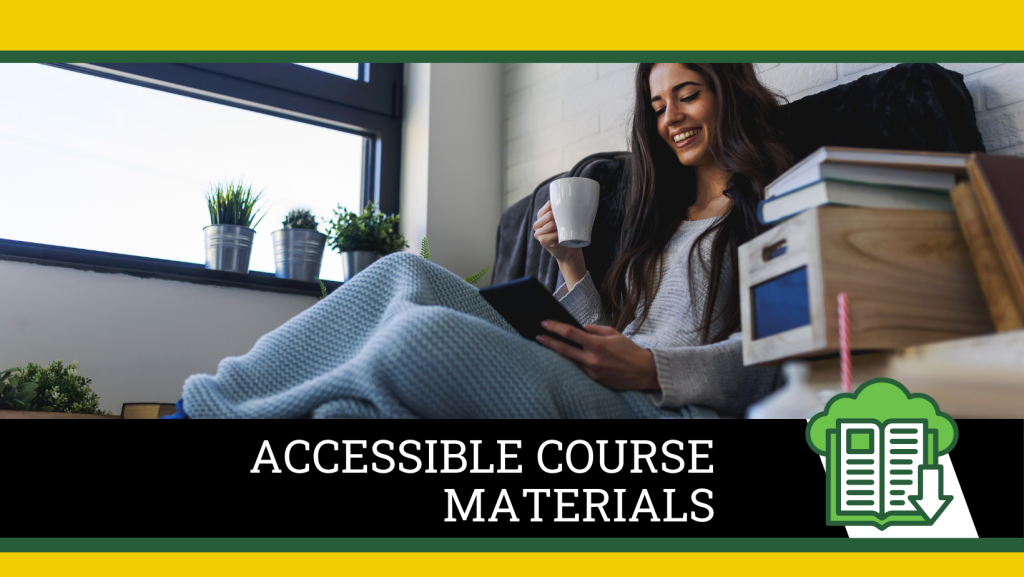
Are you teaching a course this fall? A huge consideration that goes into planning an effective course is the required reading materials that your students will need to consume to be successful in your course. Are they going to be able to access their course materials should the unforeseen occur?
If the pandemic taught us anything, it’s that situations can change suddenly. Students could lose access to physical items that are located on-shelf at one of our libraries. This can cause an incredible amount of stress for those who had no other options to access these books. How can you prevent this from happening to your students? Endeavour to choose accessible course materials.
What do I mean by accessible course materials? Accessible course materials are books and articles that are available electronically through University of Alberta Library or through open access publication channels (Open Educational Resources (OERs) and articles published in open access journals). Choosing such materials helps ensure that your students can access course readings more easily. It also supports the University’s Zero Textbook Cost Program.
Tracking down open access articles and OERs is a tall order, but fear not, the library is here to help. Here are three services you can take advantage of:
- Our librarian experts can help you in your search for accessible resources. Request an appointment with one of our librarian experts using our Book A Consultation form.
- Use our Course Materials/Reading List Service. You can request that our course materials team check the availability of the items on your list, and purchase titles that are not currently in our collection.
- Create your own OER. You can also adapt an existing OER to suit your needs. Our publishing team is more than happy to help you get started. Learn more about creating OERs here; or, email publishing@ualberta.ca.
Not every book is available electronically, but taking a few extra steps in curating your course reading list can go a long way to help your students succeed.
If you have any questions about our course materials service or potential course materials Ask Us!
This post has also been translated into French for folks at Campus Saint-Jean. Access it here.
